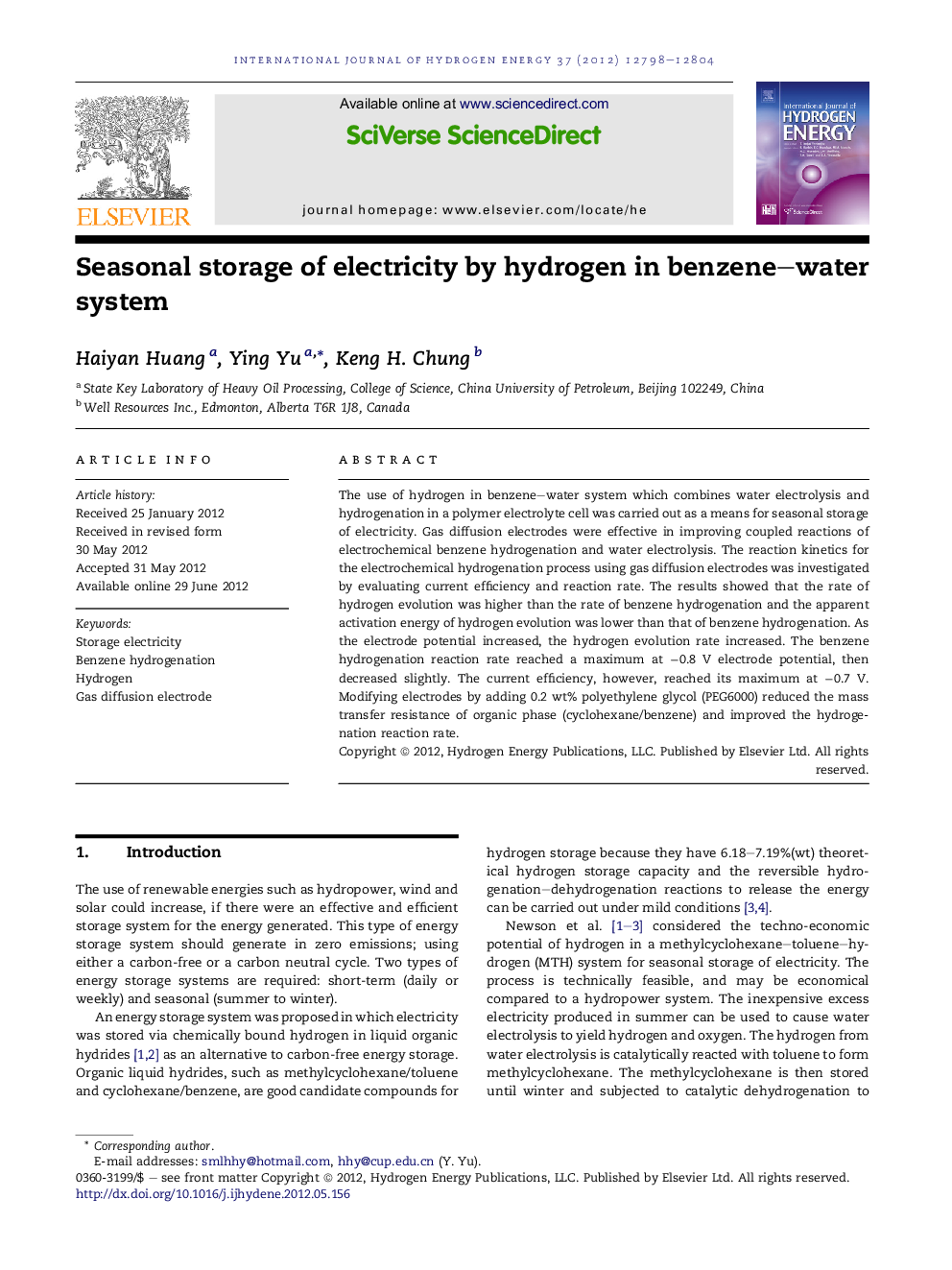| Article ID | Journal | Published Year | Pages | File Type |
|---|---|---|---|---|
| 1271122 | International Journal of Hydrogen Energy | 2012 | 7 Pages |
The use of hydrogen in benzene–water system which combines water electrolysis and hydrogenation in a polymer electrolyte cell was carried out as a means for seasonal storage of electricity. Gas diffusion electrodes were effective in improving coupled reactions of electrochemical benzene hydrogenation and water electrolysis. The reaction kinetics for the electrochemical hydrogenation process using gas diffusion electrodes was investigated by evaluating current efficiency and reaction rate. The results showed that the rate of hydrogen evolution was higher than the rate of benzene hydrogenation and the apparent activation energy of hydrogen evolution was lower than that of benzene hydrogenation. As the electrode potential increased, the hydrogen evolution rate increased. The benzene hydrogenation reaction rate reached a maximum at −0.8 V electrode potential, then decreased slightly. The current efficiency, however, reached its maximum at −0.7 V. Modifying electrodes by adding 0.2 wt% polyethylene glycol (PEG6000) reduced the mass transfer resistance of organic phase (cyclohexane/benzene) and improved the hydrogenation reaction rate.
► We combine water electrolysis and benzene hydrogenation in a polymer electrolyte cell. ► We study the reaction kinetics by evaluating current efficiency and reaction rate. ► The rate of hydrogen evolution is higher than the rate of benzene hydrogenation. ► The rate of benzene hydrogenation and the current efficiency have their maximum. ► Modifying electrodes by adding polyethylene glycol will improve the hydrogenation.
